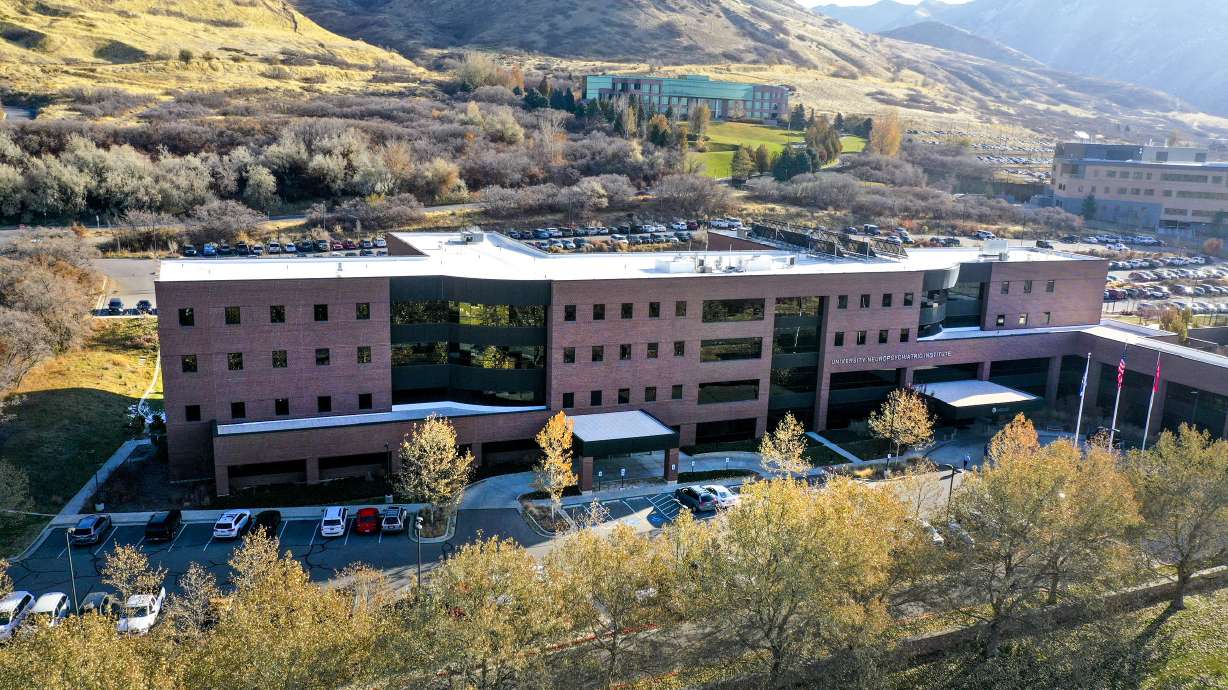Estimated read time: 3-4 minutes
This archived news story is available only for your personal, non-commercial use. Information in the story may be outdated or superseded by additional information. Reading or replaying the story in its archived form does not constitute a republication of the story.
SALT LAKE CITY — Huntsman Mental Health Institute data shows a 32% increase in Utah crisis calls in 2021 with 4% of those callers directly mentioning the COVID-19 pandemic.
But is the increase of the calls completely due to the stressors and isolation brought on by the pandemic? Rachel Lucynski, the institute's business operations manager for community crisis intervention, said the increase is the result of a combination of factors.
"We're seeing a much higher demand for suicide prevention and mental health services across the state and it's always hard to tell — is that directly related to COVID-19 and the stressors of the pandemic? Are people more suicidal? Or are people just more aware of the services? And really, it's a combination of the three," Lucynski said.
Utah struggled with increased mental health concerns and suicide before the onset of the pandemic. Suicide is the leading cause of death for youth and young adults in Utah ages 10 to 24, according to the U.S. Centers for Disease Control and Prevention. Utah has also consistently ranked among the top 10 states for the highest suicide mortality rates.
"The pandemic has exacerbated an already growing mental health crisis," Huntsman Mental Health Institute CEO Mark H. Rapaport said. "We know that an integrated crisis response system is vital to our success at addressing the challenges facing our state."
That need was noted by a University of Utah Kem C. Gardner Institute report analyzing Utah's mental health system in August 2019. Discussion participants indicated that an ideal system would provide integrated mental and physical health services in a timely manner; consistently use mental health screenings to assess individuals and identify risk, allowing for early intervention; and, ensure people have the resources to access necessary mental health services as well as safe, acuity-appropriate places to seek treatment.
Elected officials with help from various community partners have worked on addressing those needs through the Safe UT app, Mobile Crisis Outreach Teams, the 24/7 Utah Crisis Line, the Utah Warm Line run by certified peer support specialists during the weekdays, and a safe care transition team to follow up on previous service requests.
Use of services in 2021:
- 92,532 total number of calls received by the Utah Crisis Line
- 29,903 total number of calls received by the Utah Warm Line
- 6,661 total number of contacts by the Mobile Crisis Outreach Team
- 30,527 total chats & tips received on the Safe UT app, including 298 life-saving interventions
- 7,716 total calls made by the safe care transition team
And while the numbers may be staggering, Lucynski revealed that the response is working. The Huntsman Mental Health Institute has worked closely with the medical examiner and says suicide rates have been stable over the last three years.
Additional efforts are expected to maximize further crisis intervention. The Huntsman Mental Health Institute, Utah Division of Substance Abuse and Mental Health, the National Suicide Prevention Lifeline, Vibrant Emotional Health and other statewide partners are preparing for the launch of 9-8-8 in July.
The three-digit number will route callers to Utah's crisis response system at Huntsman, replacing the 10-digit number.
To further improve accessibility, the Huntsman Mental Health Institute will open a Mental Health Crisis Care Center in Salt Lake County in 2024. The new facility will expand services for those experiencing a crisis and provide evaluation outside of emergency services.
"We are gearing up. I think Utah's very well poised considering we already have many statewide crisis services available, but know that it'll be an exciting challenge and adventure and really a milestone for mental health services," Lucynski said.
While the conversation regarding mental health services and crisis intervention has been present in government, it should also carry into homes, she said.
"Talking about suicide especially can be really scary and has been taboo in our society for a long time. So the most important thing people can remember is if you're seeing behavioral changes in your loved ones — if they're not sleeping, if they're withdrawing from relationships, if they're not eating if you're worried about substance use concerns — the most important thing you can do is to ask how someone's doing," Lucynski said.










